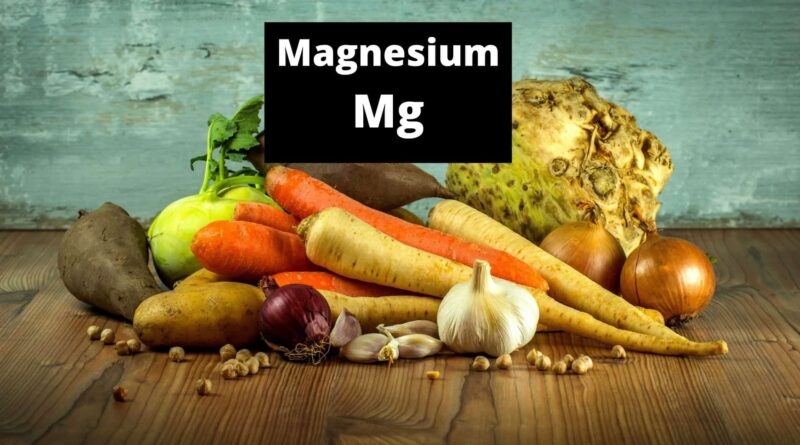Benefits Of Magnesium And Its Functions
Magnesium is the most important and necessary element for our body after oxygen, water and food. It is more important than calcium, potassium or sodium and it contributes to the regulation of all three. There are millions of people who are deficient in magnesium every day without even knowing it. However, not many people recognize and pay attention to the body’s magnesium deficiency, as well as very few people realize the great role of magnesium in life activities. Here are some benefits of magnesium and its functions in our body.
Natural Beauty Tips – Beauty Tips
Benefits of Magnesium and its functions
See also :
- 7 Healthy Tips for Teenagers
- What is Granola? Is Granola Healthy?
- 7 Home Remedies To Relieve Constipation Naturally
- 5 Easy Ways to Control Overeating Desire
- Spirulina – a natural way to strengthen immunity
- 8 Incredible Benefits of Mango Ginger
- Soursop (Graviola) fruit Health benefits and uses
- Top Benefits Of Palmyra Fruit (Iceapple)
Health problems caused by Magnesium deficiency
Magnesium deficiency reduces physical performance, so magnesium supplementation is recommended to improve physical performance specially for atheletes. Here are some health problems caused by magnesium deficiency –
- Type 2 diabetes
- Osteoporosis (bone loss)
- Exacerbation of asthma attacks
- Hypoglycemia (Decrease in the amount of sugar in the blood)
- Hypertension
- Increase in migraine symptoms
- Kidney ailments
- Heart diseases
- Respiratory diseases
- Depression
- Restless legs syndrome
Symptoms of Magnesium deficiency
- Tiredness
- Loss of appetite
- Nervousness, stress and insomnia
- chronic headaches
- Numbness and tingling in hands and feet
- Confusion and trouble focusing
- Hypertension
- Joint pain and cramping
- Extremely painful menstrual period in women
- Delayed growth of nails
- Nausea and vomiting
- Hair loss
- Chronic constipation
- exacerbation of asthma symptoms
- heart rhythm disorders
Benefits of Magnesium and its functions
The benefits of magnesium and its functions are many. About 60% of this mineral is found in the bones, and 70% of this is associated with calcium and phosphorus. It is also present in extracellular fluids and soft tissues, mainly in muscle. Magnesium is involved in the metabolism of carbohydrates, lipids and proteins and in the synthesis of mitochondrial ATP. Many steps in glycolysis require magnesium, either in the formation of a complex with the substrate ATP or ADP.
Functions Of Magnesium In The Body
- It balances blood sugar, reduces the risk of diabetes and prevents insulin resistance.
- It is important in cellular energy production (ATP production). Perhaps this is the most important task of magnesium.
- It is beneficial in maintaining blood circulation and blood pressure at the optimal level of well-being.
- It reduces the risk of heart diseases.
- It is used in the treatment of irregular heart rhythms.
- It is important in thyroid functions.
- It is important in the clearance of harmful metabolites of estrogen.
- It is important in regulating adrenaline and cortisol levels.
- It is important in the production of testosterone.
- It increases serotonin.
- It calms the nervous system.
- It relieves pain and can be effective in nerve pain.
- It relaxes the muscles and increases muscle performance.
- It may be useful in the treatment of asthma.
- It can increase sports performance and shorten the recovery time of the body after sports.
- It strengthens the immune system.
- It reduces the risk of stroke.
- It can be used in the treatment of migraine, reducing the frequency and severity of migraine pain. It is a supplement that I especially use in my migraine patients.
- It can reduce premenstrual symptom complaints and pain.
- Fights against metabolic syndrome.
- It supports neurological functions and acts as a cofactor in many enzymatic reactions.
- Its effectiveness in the treatment of anxiety, depression and distraction has been highlighted by many studies.
- It is important in the treatment of chronic inflammation. It is one of the reasons why I use it for a certain period of time in all my patients.
- It can prevent some symptomatic problems that may occur during pregnancy.
- It is important in the treatment of eclampsia.
- It provides relief in constipation.
- It is important in the treatment of skin allergies. It benefits this situation through its functions in detoxification.
- Supports optimal kidney functions.
- It is important for sleep health and deep sleep. It should definitely be considered in the treatment of sleep disorders.
- It can be used in head trauma and bleeding.
- It provides bone density and calcium balance.
- It joins the ligaments and provides flexibility.
- It is important in sodium and potassium regulation.
- To reduce the side effects of chemotherapy,
- For recovery after surgeries,
- In infective skin lesions (especially streptococcus),
- It can be used to treat high cholesterol.
Apart from the above, it can be used –
- In the treatment of fibromyalgia,
- In the treatment of cystic fibrosis,
- In the treatment of osteoporosis,
- In the treatment of chronic pain,
- In the treatment of COPD,
- In the treatment of rashes, skin irritations, skin ulcers,
- In the treatment of hay fever,
- In the treatment of diseases caused by high altitude,
- In the treatment of alcoholism,
- In the treatment of chronic fatigue syndrome,
- In the treatment of kidney stones,
- in the treatment of hearing loss.
- In the treatment of urinary incontinence,
- In the treatment of restless legs syndrome,
- In the treatment of multiple sclerosis,
- In cancer treatment,
- In weight loss treatment,
What foods contain magnesium?
- Legumes such as peas, kidney beans, lentils, and beans
- Soy products such as soy flour and tofu
- Whole grains such as brown rice and millet
- poppy seeds
- Dark chocolate
- Yogurt and kefir
- Tuna,
- Avocado
- peanut butter
- Rolled oats
- Fruits such as banana, watermelon, melon, date, coconut, fig
- Nuts like roasted pumpkin seeds, dried apricots, hazelnuts, almonds and cashews
- Dark green leafy vegetables such as arugula, beets, mint, dill, spinach, chard
- Vegetables such as turnip, tomato, eggplant
Excess Magnesium and its harms
Excessive intake of magnesium can cause health problems, just like its deficiency.
Side effects of excessive magnesium consumption
- Depression and lethargy
- Gastrointestinal problems such as diarrhea, nausea, and cramping
- Kidney problems, low blood pressure, central nervous system problems, cardiac arrest.
Useful Health Tips – How to boost your Immunity
FAQs
How to Use Magnesium?
You can get the magnesium your body needs naturally from many foods mentioned above. In addition, it is possible to use tablets, i.e supplements.
What is Magnesium?
Magnesium is an essential mineral found in all living things and humans. 60% of the magnesium in our body is found in the bones, the rest is in the muscles, soft tissues and blood. As one of the body’s electrolytes, its main job is to convert food into energy, create DNA and RNA, and regulate neurotransmitters in the brain. It is abundant in dark green leafy vegetables. Magnesium deficiency can cause many health problems and complications. In its treatment, tablets and pills containing magnesium are mostly prescribed. Consumption of foods rich in magnesium is also extremely important during the treatment phase.
What is Magnesium deficiency?
On average, the amount of magnesium stored in a person’s body is about 28mg where most of it is contained in bones, followed by muscle and a small amount in soft tissues and body fluids.
Although small, magnesium is involved in many important bodily functions. In general, magnesium reduces muscle cramps and fatigue, helps lower blood pressure, relieves premenstrual syndrome problems, helps prevent diabetic complications and aids effective calcium utilization.
Magnesium levels in the body are easily reduced due to factors such as stress, strenuous physical activity and the intake of certain types of medications. Therefore, the intake of supplements is highly encouraged.
What are the Food Sources Contain Magnesium?
Almost all of our magnesium needs come from plants. Magnesium obtained from chlorophyll is very important for plants in performing photosynthesis. Therefore, dark green leafy vegetables are the best source of magnesium. Almost all types of legumes, grains & long beans are high sources of magnesium. Soybeans, almonds, brazil beans & hard fruits are examples of other foods that contain calcium.
Traditionally processed natural sea salt & hill salt are also high in magnesium. Natural sea salt also contains 84 elements including magnesium.
Popular Posts :
- 12 Ways To Manage Depression Without Medication
- 7 Ways To Overcome Laziness To Exercise
- 7 Habits That Drain Your Energy
- 8 Foods That Increase the Risks of Heart Attacks
- 7 Healthy Tips for Teenagers
- What is Granola? Is Granola Healthy?
- Red clover and its medicinal properties
- 7 Home Remedies To Relieve Constipation Naturally
- 5 Easy Ways to Control Overeating Desire
- Heart Attack At A Young Age
- Spirulina – a natural way to strengthen immunity
- 10 Signs Your Body Is Lacking Minerals
- 8 Incredible Benefits of Mango Ginger
- Soursop (Graviola) fruit Health benefits and uses
- Top Benefits Of Palmyra Fruit (Iceapple)





